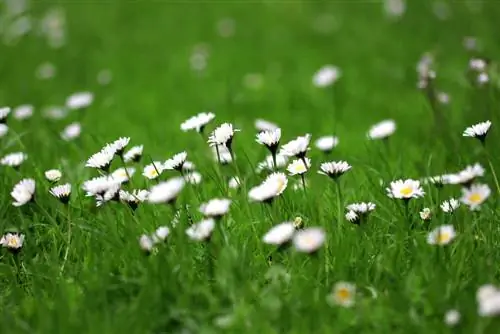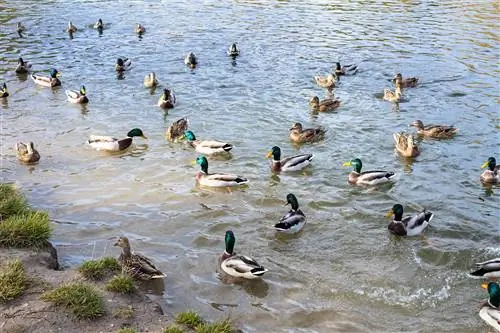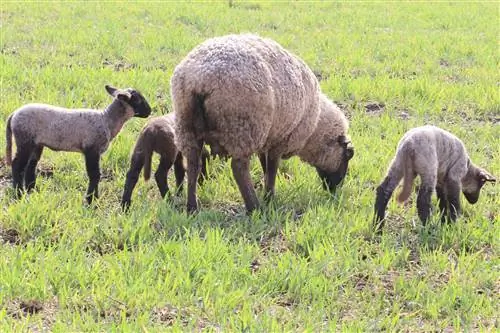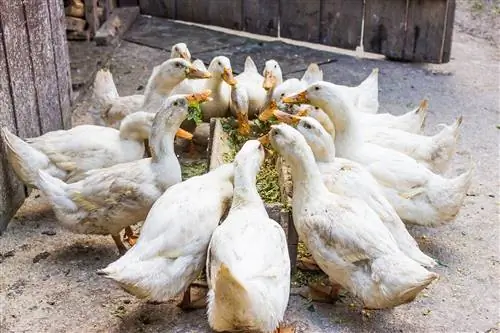- Author admin caroline@plants-knowledge.com.
- Public 2023-12-17 03:39.
- Last modified 2025-01-24 12:45.
Feeding ducks is a beloved human habit. What is little known, however, is that some well-intentioned food not only harms waterfowl, but also worsens the water quality of the duck pond. Find out here what ducks are not allowed to eat.
Natural nutrition
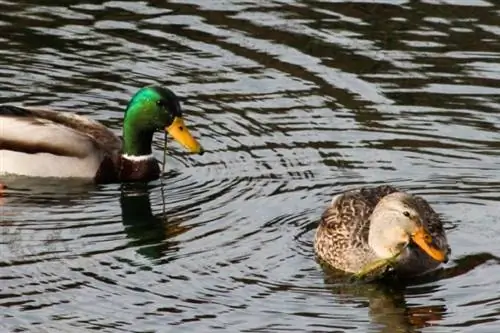
In biology, ducks are omnivores. Their plant food spectrum includes seeds, fruits and plants that grow in water, on the bank or on land. Animal food sources include tadpoles, spawn, worms and molluscs. In general, waterfowl are considered undemanding when it comes to their choice of food - but that doesn't mean that you can give ducks just anything to eat without hesitation.
Unsuitable foods
Ducks are not very picky and will eat pretty much anything that can be digested to some extent and comes to their beaks. Therefore, from a duck's perspective, human feeding is a good source of food as it promises nutrition without much effort. It doesn't occur to the animals that this could also be food that can harm them.
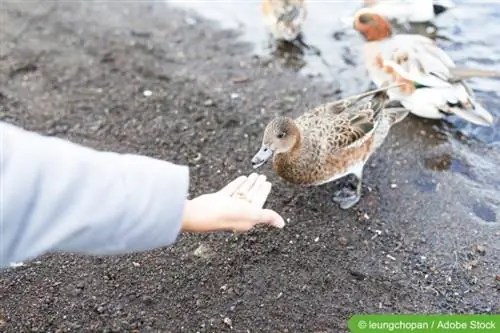
Note:
If you feed ducks near water, it is best to put the food out on the bank. This keeps the water clean.
Bread
Bread, rolls and other pastries are very popular with ducks, but are not suitable food for the animals. The argument against duck food, which is popular with humans:
- too high s alt content for ducks
- contains too much sugar
- swells in the stomach (can lead to death)
Due to the many carbohydrates, rolls and the like are also known as “fast food for ducks”. Although the pastry fills the duck's stomach, it contains no nutrients. Therefore, regular feeding with bread leads to a nutrient deficiency.
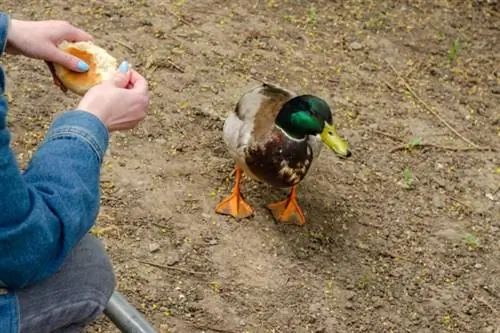
Note:
Feed only as much as the animals actually eat. If you notice that the ducks are full, you should stop feeding them immediately.
S alty and sweet
In addition to bread, ducks are also not allowed to eat s alty and sweet foods. Therefore, when feeding you should avoid foods like
- French fries
- Potato chips, popcorn, pretzel sticks and the like
- Cookies (and other sweets)
- Cake
waive.
Fruits and vegetables
Fruit and vegetables are suitable duck food in and of themselves. However, you should pay attention to the following:
- Organic quality
- must not be spoiled
- must not be processed (e.g. creamed vegetables, salad with dressing)
- preferably feed local fruit and vegetables (e.g. apples, pears, cucumbers, carrots)
- prefer low-calorie vegetables to ripe fruit (sugar content)
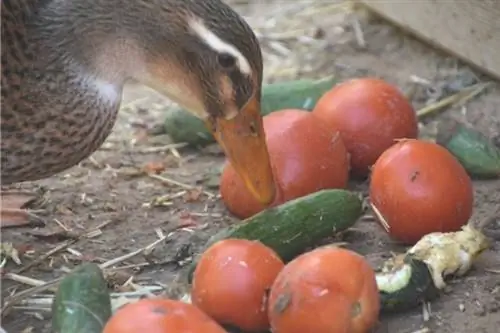
In addition, you should always offer fruit and vegetables in a way that is suitable for the beak. Ducks don't have teeth with which they can, for example, take a bite out of an apple. If the mallard manages to break out an edible piece with its beak, there is a risk that the animal will choke on it if it is swallowed. To avoid suffocation, the following preparations are recommended:
- cooking (if possible without s alt)
- grate
- mash cooked vegetables
Note:
Stay away from moldy food! They belong in the organic waste bin and not in duck stomachs.
Frequently asked questions
What do ducks like to eat most?
Lettuce, lettuce stalks and potatoes cooked without s alt are popular snacks for ducks. Oat flakes as well as chopped tomatoes and grapes are also suitable as duck food.
Can ducks eat grain?
Crushed corn kernels, wheat and barley are popular food for mallards. They are less fond of oats and rye.
Can ducks eat bananas?
Ducks are not allowed to eat ripe and overripe bananas. The fruits are nice and soft, but contain too much fructose. Therefore, only unripe (hard or green) bananas that are chopped or mashed are suitable.
Do ducklings need to be fed other food?
Ducklings, like their parents, are omnivores. Scientific experiments have shown that animal protein has a positive effect on their development. However, since the chicks are with their parents at the duck pond, targeted feeding is not possible.


